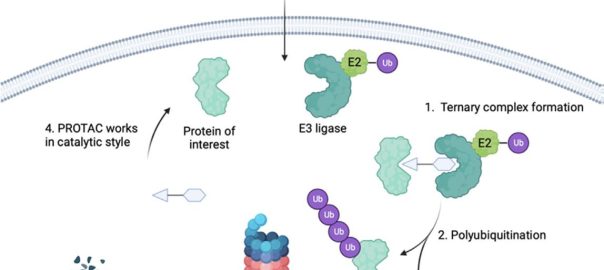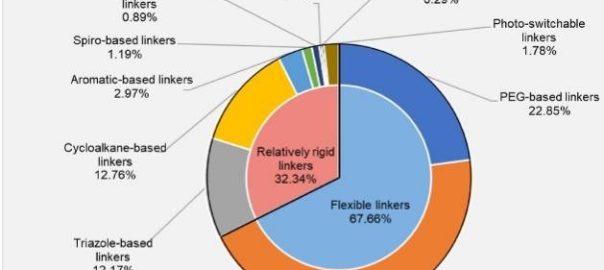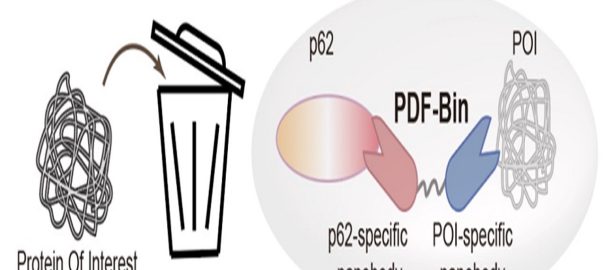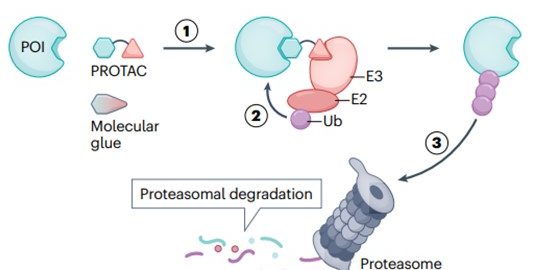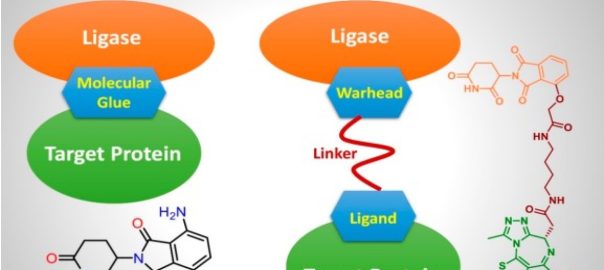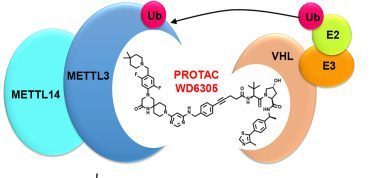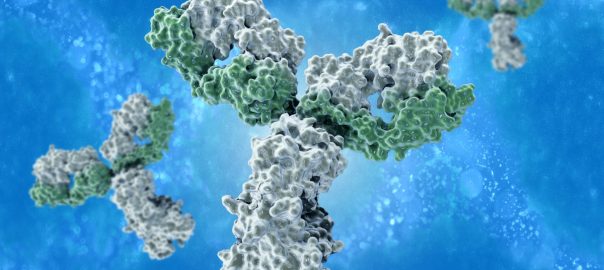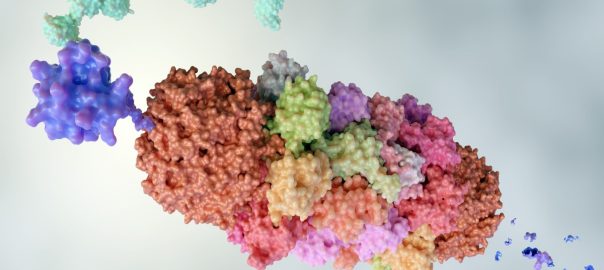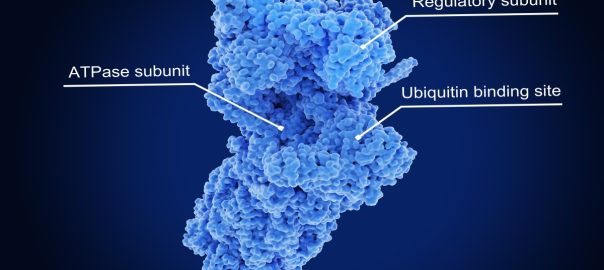The field of drug discovery is witnessing a revolutionary shift with the advent of Proteolysis Targeting Chimeras (Protein Degraders). This innovative therapeutic strategy is redefining how we approach the degradation of proteins,Read More…
Linker Matters in Protein Degrader Design
Proteolysis targeting chimera (Protein Degrader) technology represents a breakthrough development in the field of drug discovery, utilizing the ubiquitin proteasome system to specifically degrade disease-related proteins. Protein Degraders are characterized by theirRead More…
New Role Introduced: PDF-Bin, Protein Targeting the Degradation “Dumpcart”
Over the past two decades, protein-targeting degradation technologies (TPD), epitomized by Protein Degrader (proteolysis targeting chimera), have undergone rapid development and are considered one of the most promising breakthrough technologies for tacklingRead More…
Extracellular Protein Targeted Degradation (eTPD): Six Drug Discovery Modalities
Targeted protein degradation (TPD) has emerged over the past decade as a major novel drug modality for the removal of intracellular proteins with bispecific small molecules that recruit proteins of interest (POIs)Read More…
Review: Molecular Glue vs. Protein Degrader
Targeted protein degradation (TPD) primarily degrades target proteins through the ubiquitin-proteasome and lysosome, and according to the specific mechanism of action, it can be further subdivided into nearly 10 different technical routes,Read More…
A New Protein Degrader Targeting the METTL3-METTL14 Complex Has Arrived!
N 6-methyladenosine (m6A) methylation is the most abundant type of RNA modification, primarily catalyzed by the METTL3-METTL14 methyltransferase complex (MTC). This complex includes the core catalytic proteins METTL3 and METTL14, as wellRead More…
Researchers Have Made New Advances in the Field of Protein Degradation
ROTAC technology has advantages such as targeting non-druggable targets, high catalytic activity, and overcoming drug resistance, making it a new strategy in drug development. Traditional Protein Degrader design and synthesis require aRead More…
Deciphering the MOA of Lysosome-targeted Chimeras Promises the Development of New Treatment Options
When targeting harmful proteins that cause or spread disease, drugs usually block the protein’s active site, making it unable to function and causing severe damage. New strategies targeting these proteins may sendRead More…
Neuron: Revealing the Molecular Mechanism of the Spread of Toxic tau Proteins in the Brain
In Alzheimer’s disease, fibrous tau pathology accumulates and spreads in the brain, leading to synaptic loss. Researchers studying mouse models have found that tau protein can spread from presynaptic to postsynaptic synapses,Read More…
A Major Breakthrough! Discovery of a New Mechanism for Protein Degradation in Cells
Proteins with short lifespans control gene expression in cells and perform many crucial tasks, from aiding in brain connectivity to assisting the body in immune defense. These proteins are produced in theRead More…

